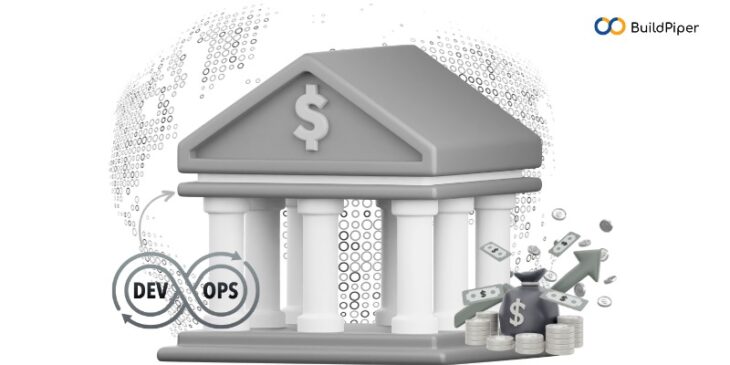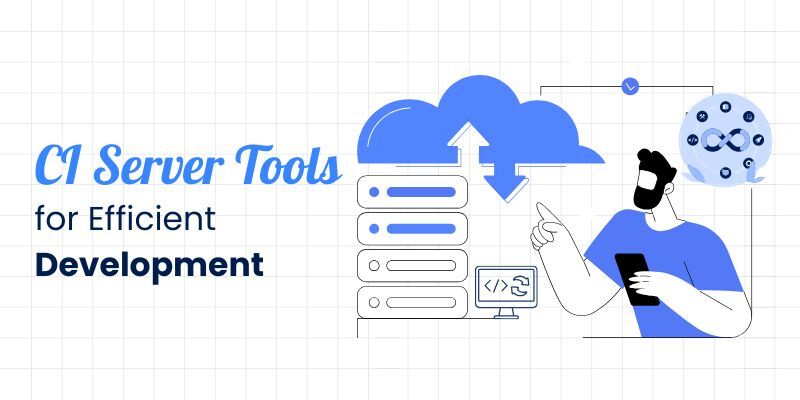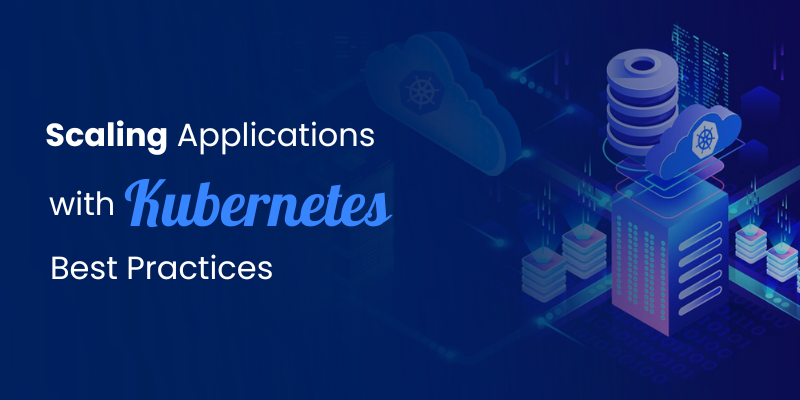
In the fast-paced realm of financial technology (fintech), staying ahead of the curve is not just a goal but a necessity. As the financial industry continues to undergo a digital transformation, the intersection of technology and finance has given rise to unprecedented opportunities and challenges.
According to a report, the global DevOps market will be worth $57.90 billion by 2030.
This blog explores the relationship between Fintech and DevOps, delving into how the principles and practices of DevOps can be harnessed to achieve excellence in the ever-evolving fintech ecosystem.
The Role of DevOps in the Fintech Industry
The role of DevOps in finance encompasses the strategic integration of development and operations practices to streamline and enhance the software development lifecycle. In the context of the FinTech sector, where technology plays a crucial role in financial services, DevOps becomes particularly vital for several reasons:
- Agility and Speed: DevOps consulting practices enable FinTech companies to respond rapidly to market changes, customer demands and regulatory requirements. The iterative and continuous nature of DevOps facilitates faster development cycles and quicker delivery of new features and updates.
- Risk Management: In the financial industry, risk management is paramount. DevOps practices help mitigate risks by ensuring consistent and reliable software releases. Automated testing, continuous monitoring and feedback loops contribute to the early detection and resolution of potential issues.
- Scalability: FinTech companies often experience rapid growth and changes in user demand. DevOps in finance supports scalability by automating infrastructure provisioning and deployment processes, allowing systems to scale seamlessly based on workload fluctuations.
- Security and Compliance: Security is a critical aspect of FinTech operations. Secure DevOps for Fintech includes implementing security measures throughout the development lifecycle, promoting a “DevSecOps” approach.
This ensures that security considerations are integrated from the start and compliance requirements are met consistently. The role of DevOps in the FinTech industry is to provide a foundation for efficient and secure DevOps for FinTech. This enables companies to stay competitive in a dynamic and technology-driven financial landscape.
Deploying DevOps in the Fintech Industry
Deploying DevOps in the finance industry can bring about significant benefits by improving collaboration, increasing efficiency and ensuring rapid, reliable and secure software delivery. However, due to the highly regulated and security-sensitive nature of the finance sector, implementing DevOps in this industry requires careful planning and consideration. Here’s a guide on how to deploy DevOps in the finance industry:
1. Understand Regulatory Compliance:
- Compliance as Code: Implement compliance checks as code to ensure that regulatory requirements are met automatically during the development and deployment process.
- Audit Trails: Maintain detailed audit trails for all changes made in the software development lifecycle to facilitate regulatory audits.
2. Security-First Approach:
- Automated Security Testing: Integrate security testing tools into the CI/CD pipeline to automatically identify and remediate vulnerabilities in the code.
- Access Control and Encryption: Implement strong access controls, encryption and data protection measures to safeguard sensitive financial data.
3. Infrastructure as Code (IaC):
- Automated Provisioning: Use IaC to automate the provisioning and configuration of infrastructure, ensuring consistency and reducing the risk of configuration errors.
- Immutable Infrastructure: Implement immutable infrastructure concepts to enhance security and reliability.
4. Continuous Integration and Continuous Deployment (CI/CD):
- Automated Testing: Implement automated testing at every stage of the development process to catch issues early in the financial services delivery pipeline.
- Rollback Strategies: Develop robust rollback strategies to quickly revert to a stable state in case of deployment failures.
5. Monitoring and Logging:
- Real-time Monitoring: Implement real-time monitoring to detect and respond to issues promptly, preventing potential financial losses.
- Log Analysis: Utilize log analysis tools to gain insights into system behaviour and identify security incidents or performance issues.
6. Risk Management:
- Risk-Based Testing: Prioritize testing efforts based on risk assessments to focus on critical functionalities and potential security vulnerabilities in the financial services delivery pipeline.
- Incident Response Plan: Develop and regularly update an incident response plan to address and mitigate the impact of security incidents.
By following these practices, the finance industry can leverage DevOps methodologies to streamline operations, improve software quality and enhance security while meeting regulatory requirements. It’s crucial to continuously evaluate and adapt DevOps processes to align with the dynamic nature of the financial sector.
The Future of DevOps is Here!
Implementing DevOps can pose several challenges, but overcoming them is crucial for organizations seeking to enhance collaboration, accelerate development cycles and improve overall efficiency. In such a scenario, a robust platform such as BuildPiper can HELP!
BuildPiper’s unique features and benefits make it the ultimate DevOps solution for organizations of all sizes. By adopting this powerful platform, organizations can enhance their software development processes, increase efficiency & productivity and drive innovation in a highly competitive digital landscape.
So, don’t let the challenges of DevOps implementation hold you back! Take your software development processes to the next level with BuildPiper – the ultimate DevOps platform that can help you achieve faster and more reliable software development, continuous integration and delivery, automated testing, collaboration and scalability. Sign up today to obtain DevOps consulting services and revolutionize your DevOps transformation Journey NOW!



